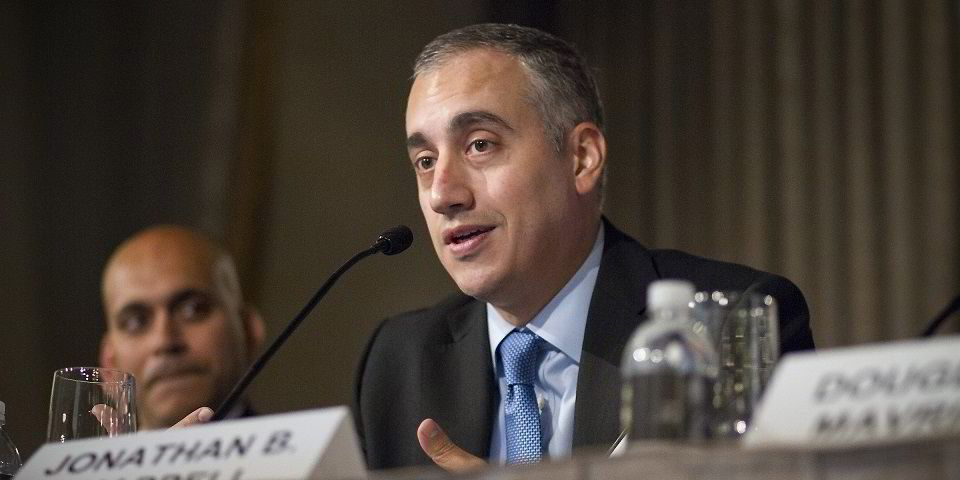Schlumberger’s withdrawal from an FLNG project involving Golar has reduced the chances of the project progressing but does not mean the death knell has been sounded for Equatorial Guinean scheme, analysts say.
Golar revealed on Friday that Schlumberger had terminated discussions with Ophir Energy to partner in the Fortuna FLNG scheme, sending shares in the shipowner crashing.
Jonathan Chappell, an analyst at Evercore, says investors should not confuse a hiccup with choking.
Chappell explains Schlumberger’s involvement in the project was seen as proof of concept, financing capabilities and improving the chances of successful completion overall. However, while Ophir is still progressing the development, Chappell says it is likely to be delayed by up to six months.
The analyst explains that Friday’s news is certainly not welcome but notes Golar does have other much more lucrative FLNG projects in the pipeline.
“We do not believe Schlumberger’s removal from Fortuna means the FLNG concept is dead. Far from it,” Chappell wrote in a report. However, he added: “It certainly calls into question whether this specific project will move forward.”
Michael Webber of Wells Fargo believes Friday’s development has reduced the odds of Golar proceeding with the project considerably, suggesting they are now below 50/50.
Webber says Golar's primary concerns are building lasting partnerships and making sure its first project with Schlumberger is successful, noting a framework agreement signed in February between the companies remains in place.
Benjamin Nolan of Stifel says that while the news presents an increased degree of operational risk along with a potential delayed schedule, any delays would decrease Golar's liquidity concerns.
“There remains a healthy and strong backlog of projects available that would suit the FLNG conversion projects nicely and market interest for these projects remains high given their lower cost, shorter time to market, and increased flexibility,” he said.




